Focusing on the theme “African Swine Fever”, theme reporters on the forum had initiated a series of discussions covering many sections such as pathogeny, epidemiology, monitoring and detection and the ensuing diagnosis, vaccine development, precaution and eradication, concept and industrial chain stakeholder cooperation, and shared their experiences concerning their own research results and ASFv prevention experience in European countries with more than 100 experts, scholars and entrepreneurs and other participants.
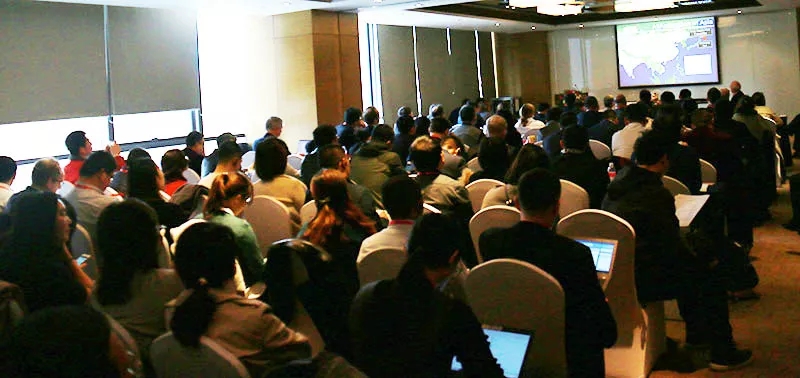
IPGC 2019 launched in Beijing, bringing together more than 100 participants from research institutes, pig farming enterprises, industrial representatives of animal health, equipment, supermarkets domain.
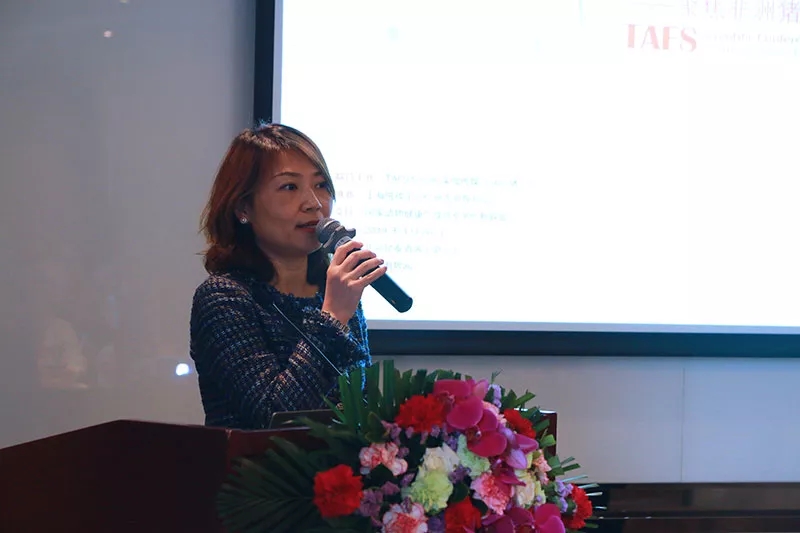
Li Dingding, General Manger of LyJa Media
“With two more years, it would be 100 years since the discovering of African Swine Fever. Nowadays, the prevention and control of ASFv has become a world nodus.” Li Dingding remarked in her speech. Renowned experts in the ASFv field were invited to the forum to share European experiences in the battle against ASFv and to investigate the prevention and control measures that suits China pig farm, slaughtering house, and industrial chain.
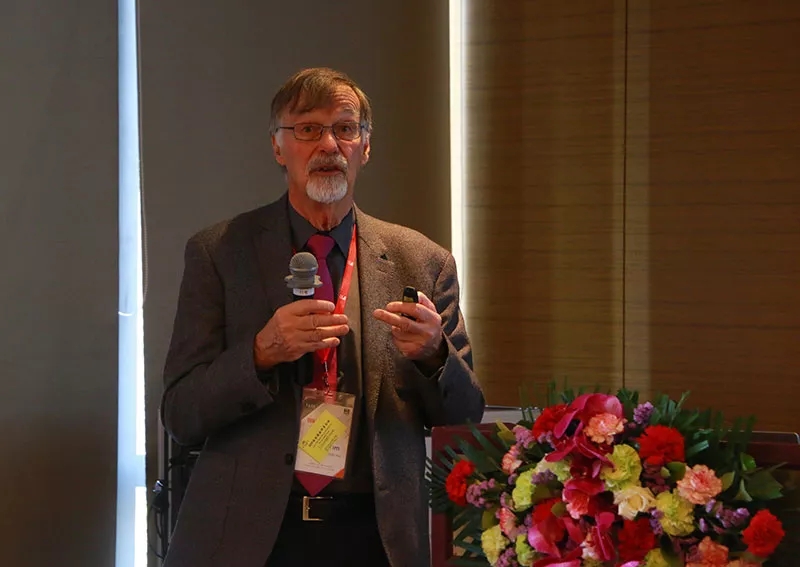
Ulrich Kihm, President of International Organization for Animal Infectious Diseases and Food Safety (TAFS)
Ulrich Kihm, the president of TAFS in his speech observed that the prevention and control of ASFv is connected with pig industry and food chain, and though “many of them are competitors against each other, they should develop cooperation when necessary to confront the difficulty together.” Kihm with his 30 years’ experience in ASFv field, he further elaborated that “ASFv caused huge economic damage to pig farmers and also increased the risk of food safety. Therefore, it is necessary and important to launch International Pig Forum China to spread scientific knowledge and to initiate dialogues with the purpose of studying the methods of efficiently preventing and controlling ASFv from more detailed aspects.
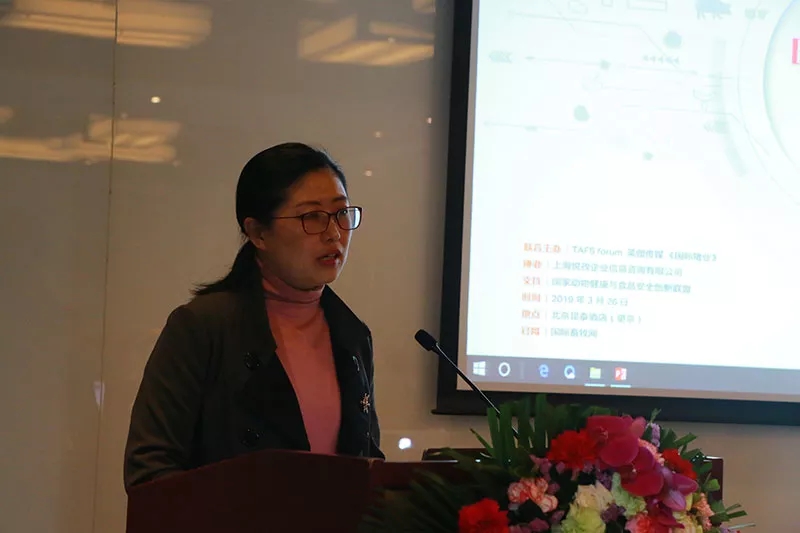
Huang Xiangyang, Secretary- general of China Animal Health and Food Safety Alliance (CAFA)
“The prevention and control of Animal epidemic is closely related with food safety of animal origin, thus the prevention and control of animal epidemic is critical to food safety of animal origin.” Huang Xiangyang in her speech commented that “since the outbreak of ASFv in China, governments in all regions have conscientiously implemented national decisions on the prevention and control and ASFv, which achieved a lot in the control of ASFv. The governments should always on the nerves in their prevention and control of the ASFv.”
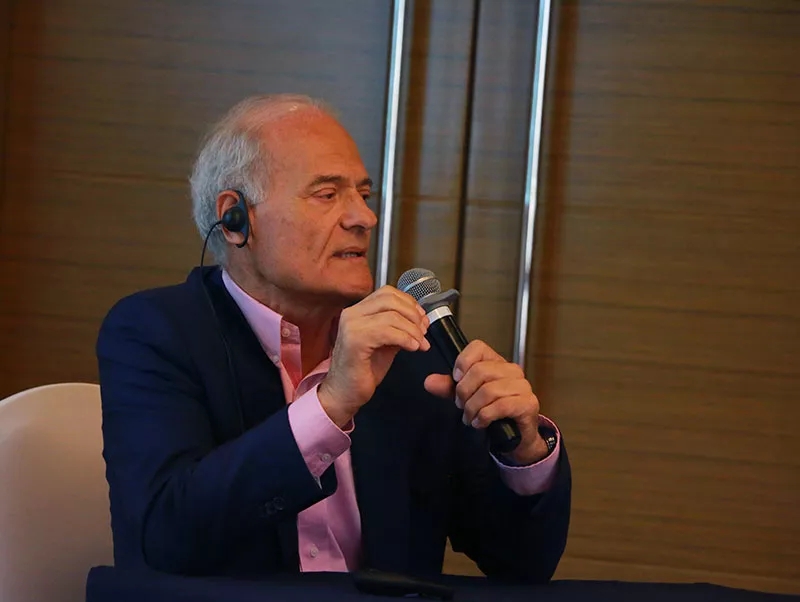
José Manuel Sanchez Vizcaino, Director of ASFv research laboratory of Office International des épizooties
Hosted by Ulrich Kihm, when the forum came to its thematic section, José Manuel Sanchez Vizcaino, world renowned ASFv expert with 40 years experience and director of ASFv research laboratory of Office International des épizooties, gave four thematic reports: “the Characteristic of ASF Globally and the Reason Why It Spread so Fast in China”, “the Control and the Eradication of ASFv under Different Epidemiological Context”, “the Detection of ASFv and the Diagnose of ASFv”, “First Oral Vaccination of Wild Boar Against ASFv Genotype ⅡResearch and Application”.
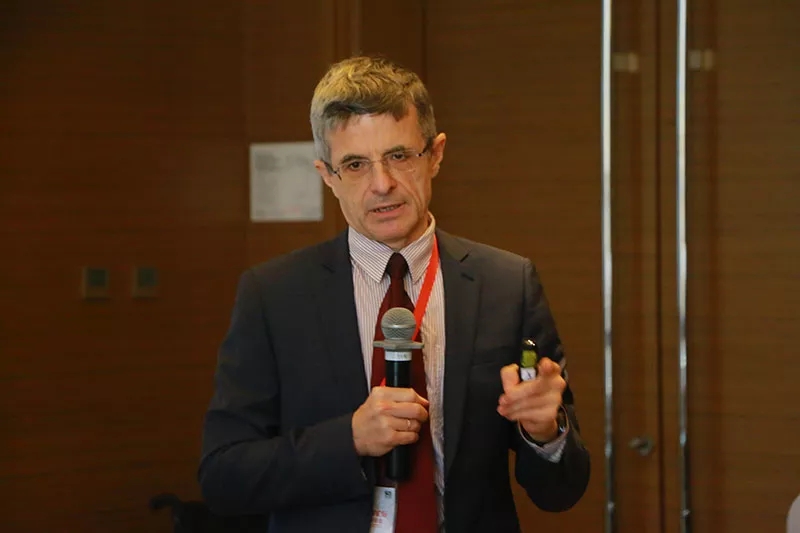
Dirk Pfeiffer, Presidential professsor of Veterinary Medicine and Life Sciences College in City University of Hong Kong
In this thematic reports, Dirk Pfeiffer, analyzed the transmission risk and prevention and control key factors of ASFv from various aspects such as pork trade and economic development, the system, policies, density of pig raising and different dietary cultures in EU, China and southeast Asia. Dirk Pfeiffer also is a professor of veterinary epidemiology in Royal Veterinary College with 14 years’ experiences in the research of ASFv.
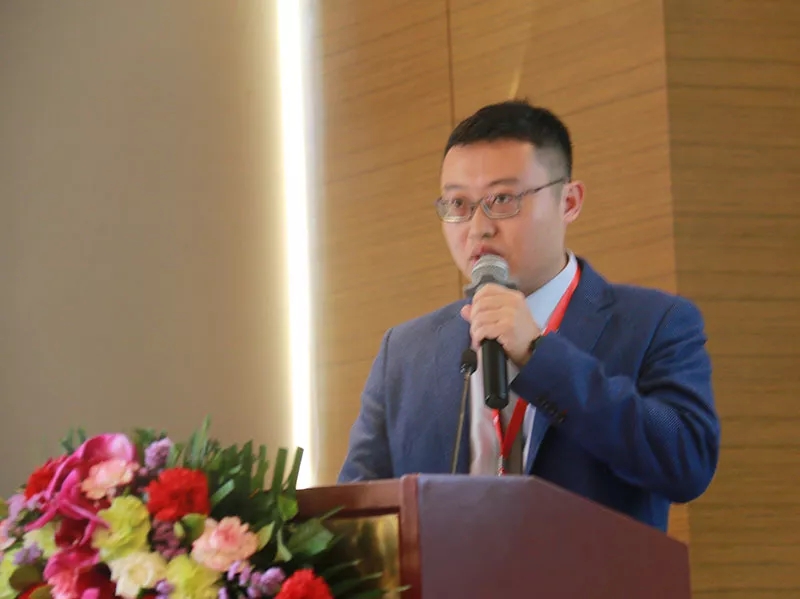
Fan Xiaoxu, doctor of China Animal Health and Epidemiology Center
Based on the first ASFv case discovered in China and its sample taking, detection and diagnose, Fan Xiaoxu, doctor of China Animal Health and Epidemiology Center, introduced plenty of laboratory testing methods on detecting ASFv, discussed the methods to prevent cross infection and false positive detection results in the laboratory detection, and explores the laboratory required personnel and environment involvement and detection operation details.
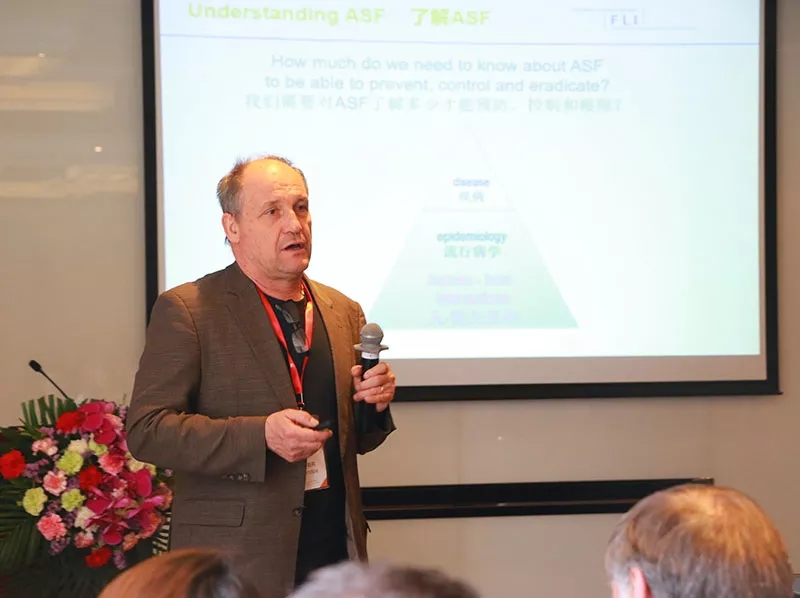
Klaus Robert Depner, Head of the Animal Health Research Team at the Friedrich Loeffler Institute
Dr. Klaus Robert Depner, Head of the Animal Health Research Team at the international renowned Friedrich Loeffler Institute, is an expert in the area of ASFv. He has conducted several investigations on ASF Epidemiology and participated projects of disease control and eradication of ASF in EU. Dr. Depner delivered three thematic reports on the forum: “the Experience and Lessons of European Countries in the Prevention and Control of ASF”, “Different Animal Safety Measures to Confront with Different ASF Situation” and “the International Succeeded Mode and the Efficient Prevention Approach in Dealing with Wild Boar Spreading ASFv”.
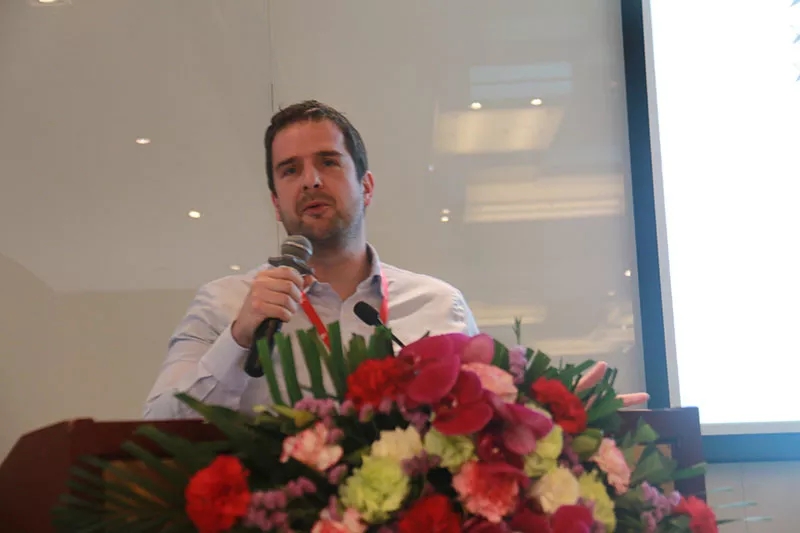
Buholzer Patrik, Global Product Manager of Thermo Fisher Scientific
On the forum, Global Product Manager of Thermo Fisher Scientific Buholzer Patrik shared his lecture records and expressed his opinions on the prevention and control of ASF and animal safety measures: “concerning the control and eradication of ASFv, I think it is vital to discover the fever as early as possible, to deal with it as soon as possible, and to respond as quickly as possible.” In Buholzer Patrik’s opinion, blood is the most important carrier of ASFv, so it is necessary to go through with scientific sampling and laboratory detection and diagnose, only in this way can the prevention and control measures be developed, which then can make sure the efficient enacting of the prevention and control of ASFv.
Guests, experts, scholars and representatives of enterprises unanimously agreed that there is no simple answer towards the prevention and control of ASFv in the complex situation which involves ASFv pathogen, epidemiology and its avenue of transmission, infection and outbreak. What’s more, ASFv is closely connected with pig, foods, logistics and transportation of the industrial chain, especially in close relationship with human activities and human factors. Therefore, all regions, all countries and the whole industry chain should cooperate together to strength communication, detection, and research and to transmit efficient scientific knowledge through training and education in the practical action against ASFv.
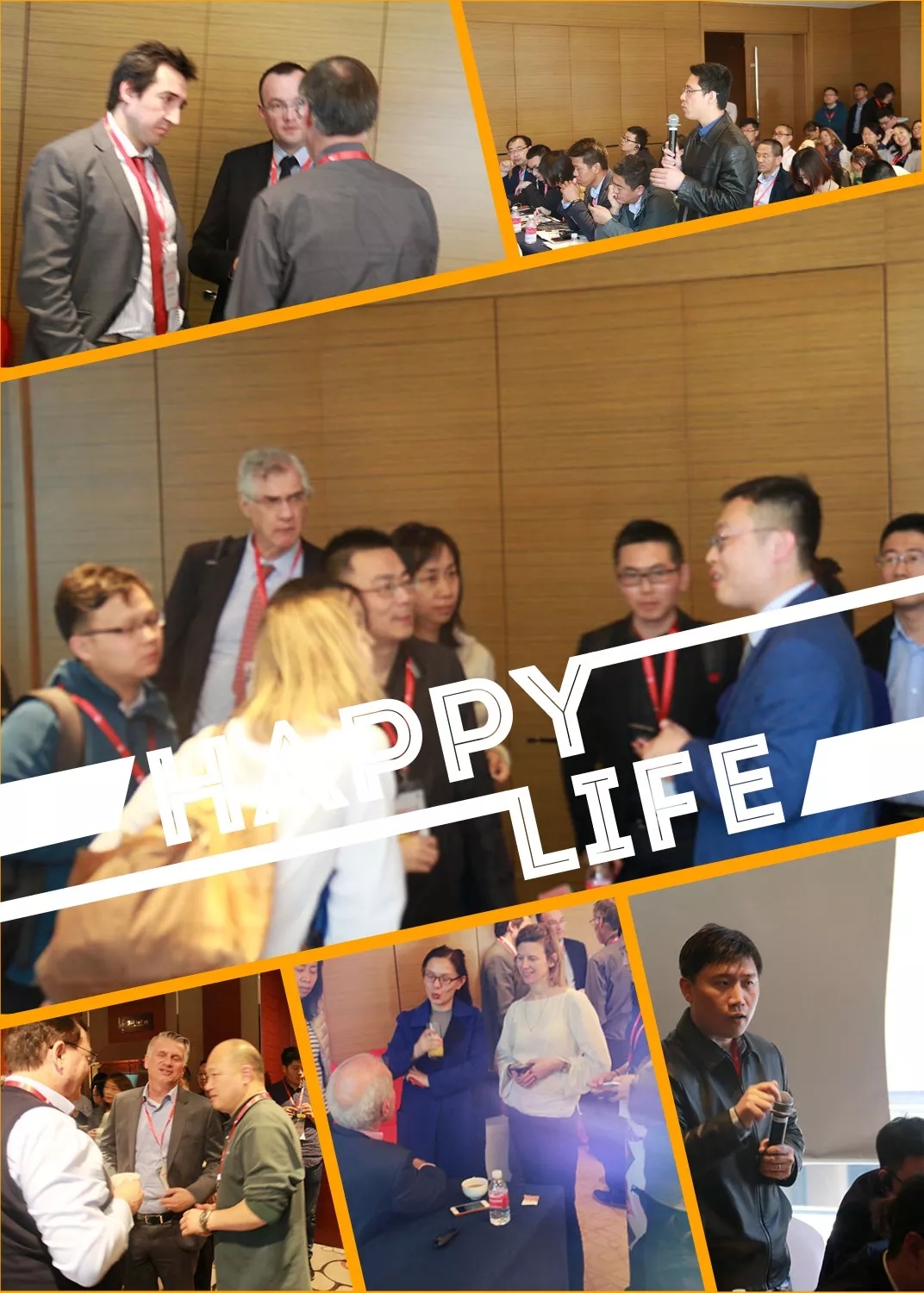
Apart from thematic reports, 2019 IPFC also was designed with interaction and Q & A activities. Thematic reporting experts contributed their answers towards many questions such as the exactitude of ASFv detection, the diagnose details of ASFv, the sample taking of ASFv, false positive detection results and the prevention, the connection between ASFv transmission and different breeds of pig, and launched a serious discussions upon the efficient approaches for China to prevent and eradicate ASFv, scientific knowledge transmission and the importance to strength the training and education for industrial stakeholders, and the risk of blood contaminated pig food and the enact of relevant policies and regulations.